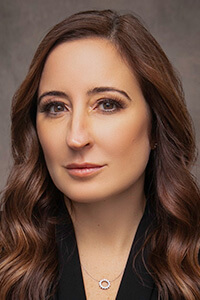
Research shows that women are much more likely to be denied, penalized for negotiating, or even lied to in negotiations.
In the first of our two-part Q&A with negotiation coach Alex Carter, the presenter said she doesn’t see negotiating as a battle or competition.
“People often talk about negotiation like you are facing off against your adversary, but in most businesses, especially in the event planning business, that ‘adversary’ — the person who’s running the hotel, the catering person, the designers you’re contracting with to do your event — they become your partner once that negotiation is done,” she told Convene. “You’re working together to produce the best, most effective, most impactful event possible.”

Alex Carter
Carter, a Columbia Law School professor, United Nations negotiation trainer, and author of the best-selling book, Ask for More: 10 Questions to Negotiate Anything, lead two PCMA Business School sessions during CL25, on Jan. 14: “Strategies to Ask for More and Achieve Better Negotiation Results” and a live coaching session directly afterwards.
Here, she speaks more about why many people don’t like negotiating, and shares a negotiating strategy that’s especially effective for women.
Why do you think many people have a distaste for negotiating?
I think people fear that it’s going to be a fight, or that they’re going to get ripped off. The reason they fear that is that the old wisdom on negotiation was you’re supposed to hold your cards close to the vest and spring a surprise on your adversary. Well, that may have worked before the age of the internet, but now, there’s so much information at people’s fingertips that they’re going to find it out anyway a lot of the time.
Transparency is often the best bet. Really negotiating from a place of, “Here’s what I need to make this work. What do you need? Let’s hammer it out.” Just a candid, straightforward, open-hearted conversation, where you’re not treating it like buying a car, but the beginning of a hopefully long-term relationship.
There are more women in event planning roles than men, but women are underrepresented in the c-suite. In your experience, do women approach negotiation differently than men when working with partners — and also when negotiating for themselves?
There are different pressures on women than men. More recent research actually shows that women do negotiate as often as men do — it’s just that women are much more likely to be denied, penalized for negotiating, or even lied to in negotiations. So oftentimes I will see women adopting strategies to combat the pressure they might get from the other side.
One strategy that’s really effective is what I call the “I – we – ask” — “Here’s what I’m asking for, and here’s how we all benefit.” In other words, you’re negotiating by tying what you’re looking for to a communal concern. You are showing the other person that you’ve thought about what they need, and you know exactly how to achieve that. When you negotiate this way, it takes down some of the potential fragility and hostility on the other side, and it makes it much, much more likely that what you’re proposing is going to get accepted.
This is a fantastic negotiation technique for people of all genders, but I find it works extremely well for women just because there is societal pressure that we should be doing the right thing for the collective good instead of doing the right thing for ourselves. So doing the work of showing that you thought about what the other person needs is often the way to get over that hump.
The other thing I would say about women and negotiating is research shows that when we have the right information, we negotiate as well or better than men. So the best way to get the most information is to be asking powerful questions and asking those upfront.
I tell women all the time: Questions are proven to make anybody more money, but they will be especially effective for us, for women, because when we ask an open, powerful question, we’re simultaneously going to get a lot of information, and we’re also going to take down any defensiveness on the other side. So, it’s really a winning combination to set you up for a great deal.
What would be an example of an open, powerful question?
“Tell me …” is the most powerful question you can ask in any scenario. “Tell me how you normally work with planners on events.” “Tell me the last few strategies that have worked for you in dealing with caterers.” “Tell me how you normally like to work with people.” “Tell me about the last few events that have gone especially well from your perspective.” “Tell me about the last few folks you didn’t like working with. What, from your perspective, went wrong there?”
By asking this question, you’re getting a ton of information to help you craft the best deals, but also to help you craft the best event for the people who are going to be filling those seats.
I always say, “Never ask a question that somebody can say ‘no’ to.” You want to ask them a question starting with what — What are your biggest priorities? And how — How do you normally like to work with people? Or, tell me. Those are the questions that are going to get you the most information and are a great way to start that negotiation.
Michelle Russell is editor in chief of Convene.
